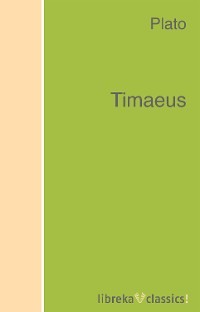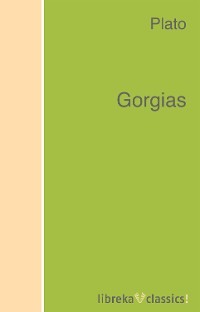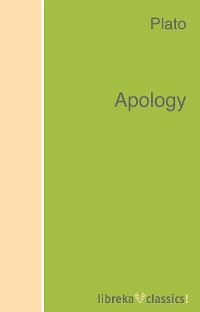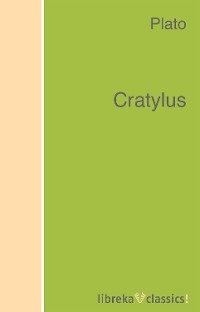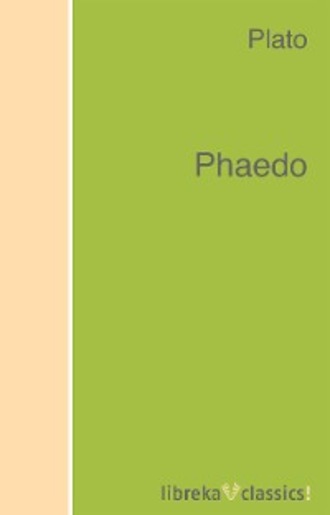
Полная версия
Phaedo
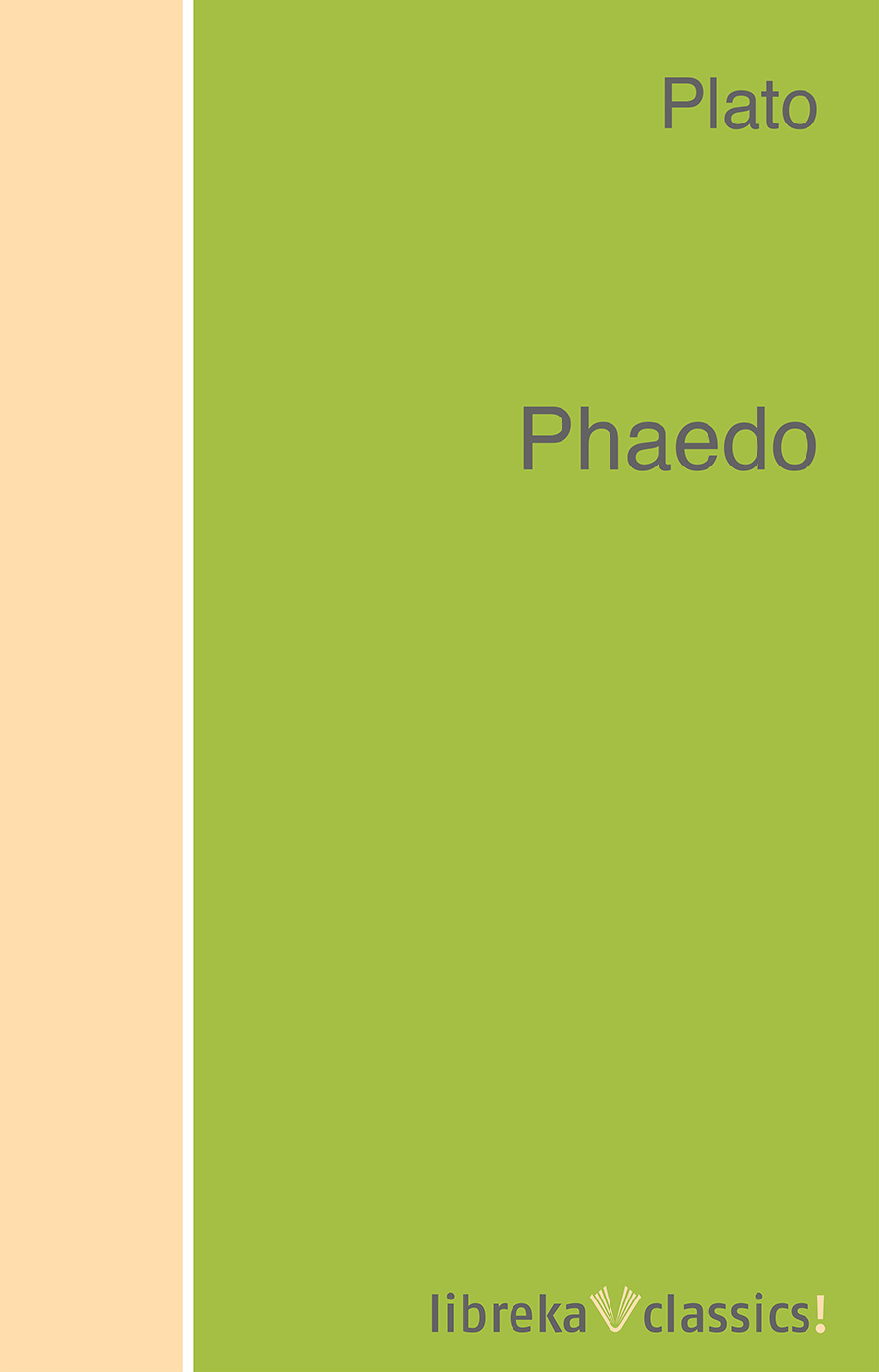

Titel: Phaedo
von William Shakespeare, H. G. Wells, Henry Van Dyke, Thomas Carlyle, Oscar Wilde, Joseph Conrad, Henry James, Anthony Hope, Henry Fielding, Giraldus Cambrensis, Daniel Defoe, Grammaticus Saxo, Edgar Rice Burroughs, Hugh Lofting, Agatha Christie, Sinclair Lewis, Eugène Brieux, Upton Sinclair, Booth Tarkington, Sax Rohmer, Jack London, Anna Katharine Green, Sara Jeannette Duncan, Xenophon, Alexandre Dumas père, John William Draper, Alice Christiana Thompson Meynell, Bram Stoker, Honoré de Balzac, William Congreve, Louis de Rougemont, Nikolai Vasilievich Gogol, Rolf Boldrewood, François Rabelais, Lysander Spooner, B. M. Bower, Henry Rider Haggard, William Hickling Prescott, Lafcadio Hearn, Robert Herrick, Jane Austen, Mark Twain, Mary Roberts Rinehart, Charles Babbage, Kate Douglas Smith Wiggin, Frank L. Packard, George Meredith, John Merle Coulter, Irvin S. Cobb, Edwin Mims, John Tyndall, Various, Charles Darwin, Sidney Lanier, Henry Lawson, Niccolò Machiavelli, George W. Crile, Théophile Gautier, Noah Brooks, James Thomson, Zane Grey, J. M. Synge, Virginia Woolf, Conrad Aiken, Edna St. Vincent Millay, Helen Cody Wetmore, Ayn Rand, Sir Thomas Malory, Gustave Flaubert, Edmond Rostand, Charlotte Brontë, Edith Wharton, Giles Lytton Strachey, Myrtle Reed, Ernest Bramah, Jules Verne, H. L. Mencken, H. Stanley Redgrove, Victor Lefebure, Edna Lyall, John Masefield, Charles Kingsley, Robert Burns, Edgar Lee Masters, Victor [pseud.] Appleton, Ellis Parker Butler, Mary Lamb, Charles Lamb, Johann Wolfgang von Goethe, Kenneth Grahame, Charles Dickens, John Ruskin, John Galt, James J. Davis, Owen Wister, William Blades, Sir Hall Caine, Sir Max Beerbohm, Baron Edward John Moreton Drax Plunkett Dunsany, Bret Harte, E. Phillips Oppenheim, Thomas Henry Huxley, A. B. Paterson, John N. Reynolds, Walter Dill Scott, Hans Gustav Adolf Gross, T. S. Eliot, Walt Whitman, Arthur Ransome, Jane Addams, Elizabeth, David Lindsay, Helen Bannerman, Charles A. Oliver, J. M. Barrie, Robert F. Murray, Andrew Lang, Jerome K. Jerome, Francis Thompson, Sydney Waterlow, Andrew Dickson White, Benjamin N. Cardozo, Karl Marx, Edouard Louis Emmanuel Julien Le Roy, Margaret Hill McCarter, Sir Donald Mackenzie Wallace, Howard Trueman, L. M. Montgomery, Frank T. Bullen, Baron Alfred Tennyson Tennyson, Jonathan Nield, Henry Wadsworth Longfellow, Charles Reade, Ouida, Washington Irving, Benjamin Louis Eulalie de Bonneville, Sir Walter Scott, Stewart Edward White, Arthur Hugh Clough, Baron Edward Bulwer Lytton Lytton, C.-F. Volney, T. Troward, graf Leo Tolstoy, Christopher Morley, James Madison, Alexander Hamilton, John Jay, Gilbert White, Percival Lowell, Frederick Marryat, Robert Graves, Thomas Holmes, Wilkie Collins, Maria Edgeworth, Katherine Mansfield, E. Nesbit, Olive Schreiner, Jeronimo Lobo, O. Henry, James Slough Zerbe, Donald Ogden Stewart, Johanna Spyri, Eleanor H. Porter, William Tatem Tilden, Sol Plaatje, Rafael Sabatini, William Makepeace Thackeray, George Gissing, Maksim Gorky, Baron Thomas Babington Macaulay Macaulay, H. G. Keene, Saki, R. B. Cunninghame Graham, Thomas Hughes, David Nunes Carvalho, Vicente Blasco Ibáñez, Carry Amelia Nation, John Fiske, Bernard Shaw, Elbridge Streeter Brooks, William Holmes McGuffey, Edward Everett Hale, Louis Ginzberg, Chester K. Steele, Christopher Marlowe, Plato, John Lord, Shakespeare, Martin Luther, Frances Hodgson Burnett, Howard Pyle, Charles Morris, Edward Carpenter, Maurice Leblanc, James Boswell, William Osler, William Ernest Henley, Theron Q. Dumont, Horatio Alger, Abraham Myerson, Joel Benton, Eden Phillpotts, Anonymous, Robert Louis Stevenson, Lloyd Osbourne, Cleland Boyd McAfee, Robert Williams Wood, H. C. Andersen, Edna Ferber, James Stephens, John Jacob Astor, Alexandre Dumas fils, Hilda Conkling, J. Storer Clouston, Julian Hawthorne, Ernest Albert Savage, Mary Eleanor Wilkins Freeman, Fernando de Rojas, Richard Harding Davis, Charles Whibley, Thomas Dixon, Sir Arthur Conan Doyle, George MacDonald, Thomas H. Burgoyne, Belle M. Wagner, Émile Gaboriau, à Kempis Thomas
ISBN 978-3-7429-1600-6
Alle Rechte vorbehalten.
Es ist ohne vorherige schriftliche Erlaubnis nicht gestattet, dieses Werk im Ganzen oder in Teilen zu vervielfältigen oder zu veröffentlichen.
PHAEDO
By Plato
Translated by Benjamin Jowett
Contents
INTRODUCTION. PHAEDOINTRODUCTION.
After an interval of some months or years, and at Phlius, a town of Peloponnesus, the tale of the last hours of Socrates is narrated to Echecrates and other Phliasians by Phaedo the 'beloved disciple.' The Dialogue necessarily takes the form of a narrative, because Socrates has to be described acting as well as speaking. The minutest particulars of the event are interesting to distant friends, and the narrator has an equal interest in them.
During the voyage of the sacred ship to and from Delos, which has occupied thirty days, the execution of Socrates has been deferred. (Compare Xen. Mem.) The time has been passed by him in conversation with a select company of disciples. But now the holy season is over, and the disciples meet earlier than usual in order that they may converse with Socrates for the last time. Those who were present, and those who might have been expected to be present, are mentioned by name. There are Simmias and Cebes (Crito), two disciples of Philolaus whom Socrates 'by his enchantments has attracted from Thebes' (Mem.), Crito the aged friend, the attendant of the prison, who is as good as a friend—these take part in the conversation. There are present also, Hermogenes, from whom Xenophon derived his information about the trial of Socrates (Mem.), the 'madman' Apollodorus (Symp.), Euclid and Terpsion from Megara (compare Theaet.), Ctesippus, Antisthenes, Menexenus, and some other less-known members of the Socratic circle, all of whom are silent auditors. Aristippus, Cleombrotus, and Plato are noted as absent. Almost as soon as the friends of Socrates enter the prison Xanthippe and her children are sent home in the care of one of Crito's servants. Socrates himself has just been released from chains, and is led by this circumstance to make the natural remark that 'pleasure follows pain.' (Observe that Plato is preparing the way for his doctrine of the alternation of opposites.) 'Aesop would have represented them in a fable as a two-headed creature of the gods.' The mention of Aesop reminds Cebes of a question which had been asked by Evenus the poet (compare Apol.): 'Why Socrates, who was not a poet, while in prison had been putting Aesop into verse?'—'Because several times in his life he had been warned in dreams that he should practise music; and as he was about to die and was not certain of what was meant, he wished to fulfil the admonition in the letter as well as in the spirit, by writing verses as well as by cultivating philosophy. Tell this to Evenus; and say that I would have him follow me in death.' 'He is not at all the sort of man to comply with your request, Socrates.' 'Why, is he not a philosopher?' 'Yes.' 'Then he will be willing to die, although he will not take his own life, for that is held to be unlawful.'
Cebes asks why suicide is thought not to be right, if death is to be accounted a good? Well, (1) according to one explanation, because man is a prisoner, who must not open the door of his prison and run away—this is the truth in a 'mystery.' Or (2) rather, because he is not his own property, but a possession of the gods, and has no right to make away with that which does not belong to him. But why, asks Cebes, if he is a possession of the gods, should he wish to die and leave them? For he is under their protection; and surely he cannot take better care of himself than they take of him. Simmias explains that Cebes is really referring to Socrates, whom they think too unmoved at the prospect of leaving the gods and his friends. Socrates answers that he is going to other gods who are wise and good, and perhaps to better friends; and he professes that he is ready to defend himself against the charge of Cebes. The company shall be his judges, and he hopes that he will be more successful in convincing them than he had been in convincing the court.
The philosopher desires death—which the wicked world will insinuate that he also deserves: and perhaps he does, but not in any sense which they are capable of understanding. Enough of them: the real question is, What is the nature of that death which he desires? Death is the separation of soul and body—and the philosopher desires such a separation. He would like to be freed from the dominion of bodily pleasures and of the senses, which are always perturbing his mental vision. He wants to get rid of eyes and ears, and with the light of the mind only to behold the light of truth. All the evils and impurities and necessities of men come from the body. And death separates him from these corruptions, which in life he cannot wholly lay aside. Why then should he repine when the hour of separation arrives? Why, if he is dead while he lives, should he fear that other death, through which alone he can behold wisdom in her purity?
Besides, the philosopher has notions of good and evil unlike those of other men. For they are courageous because they are afraid of greater dangers, and temperate because they desire greater pleasures. But he disdains this balancing of pleasures and pains, which is the exchange of commerce and not of virtue. All the virtues, including wisdom, are regarded by him only as purifications of the soul. And this was the meaning of the founders of the mysteries when they said, 'Many are the wand-bearers but few are the mystics.' (Compare Matt. xxii.: 'Many are called but few are chosen.') And in the hope that he is one of these mystics, Socrates is now departing. This is his answer to any one who charges him with indifference at the prospect of leaving the gods and his friends.
Still, a fear is expressed that the soul upon leaving the body may vanish away like smoke or air. Socrates in answer appeals first of all to the old Orphic tradition that the souls of the dead are in the world below, and that the living come from them. This he attempts to found on a philosophical assumption that all opposites—e.g. less, greater; weaker, stronger; sleeping, waking; life, death—are generated out of each other. Nor can the process of generation be only a passage from living to dying, for then all would end in death. The perpetual sleeper (Endymion) would be no longer distinguished from the rest of mankind. The circle of nature is not complete unless the living come from the dead as well as pass to them.
The Platonic doctrine of reminiscence is then adduced as a confirmation of the pre-existence of the soul. Some proofs of this doctrine are demanded. One proof given is the same as that of the Meno, and is derived from the latent knowledge of mathematics, which may be elicited from an unlearned person when a diagram is presented to him. Again, there is a power of association, which from seeing Simmias may remember Cebes, or from seeing a picture of Simmias may remember Simmias. The lyre may recall the player of the lyre, and equal pieces of wood or stone may be associated with the higher notion of absolute equality. But here observe that material equalities fall short of the conception of absolute equality with which they are compared, and which is the measure of them. And the measure or standard must be prior to that which is measured, the idea of equality prior to the visible equals. And if prior to them, then prior also to the perceptions of the senses which recall them, and therefore either given before birth or at birth. But all men have not this knowledge, nor have any without a process of reminiscence; which is a proof that it is not innate or given at birth, unless indeed it was given and taken away at the same instant. But if not given to men in birth, it must have been given before birth—this is the only alternative which remains. And if we had ideas in a former state, then our souls must have existed and must have had intelligence in a former state. The pre-existence of the soul stands or falls with the doctrine of ideas.
It is objected by Simmias and Cebes that these arguments only prove a former and not a future existence. Socrates answers this objection by recalling the previous argument, in which he had shown that the living come from the dead. But the fear that the soul at departing may vanish into air (especially if there is a wind blowing at the time) has not yet been charmed away. He proceeds: When we fear that the soul will vanish away, let us ask ourselves what is that which we suppose to be liable to dissolution? Is it the simple or the compound, the unchanging or the changing, the invisible idea or the visible object of sense? Clearly the latter and not the former; and therefore not the soul, which in her own pure thought is unchangeable, and only when using the senses descends into the region of change. Again, the soul commands, the body serves: in this respect too the soul is akin to the divine, and the body to the mortal. And in every point of view the soul is the image of divinity and immortality, and the body of the human and mortal. And whereas the body is liable to speedy dissolution, the soul is almost if not quite indissoluble. (Compare Tim.) Yet even the body may be preserved for ages by the embalmer's art: how unlikely, then, that the soul will perish and be dissipated into air while on her way to the good and wise God! She has been gathered into herself, holding aloof from the body, and practising death all her life long, and she is now finally released from the errors and follies and passions of men, and for ever dwells in the company of the gods.
But the soul which is polluted and engrossed by the corporeal, and has no eye except that of the senses, and is weighed down by the bodily appetites, cannot attain to this abstraction. In her fear of the world below she lingers about the sepulchre, loath to leave the body which she loved, a ghostly apparition, saturated with sense, and therefore visible. At length entering into some animal of a nature congenial to her former life of sensuality or violence, she takes the form of an ass, a wolf or a kite. And of these earthly souls the happiest are those who have practised virtue without philosophy; they are allowed to pass into gentle and social natures, such as bees and ants. (Compare Republic, Meno.) But only the philosopher who departs pure is permitted to enter the company of the gods. (Compare Phaedrus.) This is the reason why he abstains from fleshly lusts, and not because he fears loss or disgrace, which is the motive of other men. He too has been a captive, and the willing agent of his own captivity. But philosophy has spoken to him, and he has heard her voice; she has gently entreated him, and brought him out of the 'miry clay,' and purged away the mists of passion and the illusions of sense which envelope him; his soul has escaped from the influence of pleasures and pains, which are like nails fastening her to the body. To that prison-house she will not return; and therefore she abstains from bodily pleasures—not from a desire of having more or greater ones, but because she knows that only when calm and free from the dominion of the body can she behold the light of truth.
Simmias and Cebes remain in doubt; but they are unwilling to raise objections at such a time. Socrates wonders at their reluctance. Let them regard him rather as the swan, who, having sung the praises of Apollo all his life long, sings at his death more lustily than ever. Simmias acknowledges that there is cowardice in not probing truth to the bottom. 'And if truth divine and inspired is not to be had, then let a man take the best of human notions, and upon this frail bark let him sail through life.' He proceeds to state his difficulty: It has been argued that the soul is invisible and incorporeal, and therefore immortal, and prior to the body. But is not the soul acknowledged to be a harmony, and has she not the same relation to the body, as the harmony—which like her is invisible—has to the lyre? And yet the harmony does not survive the lyre. Cebes has also an objection, which like Simmias he expresses in a figure. He is willing to admit that the soul is more lasting than the body. But the more lasting nature of the soul does not prove her immortality; for after having worn out many bodies in a single life, and many more in successive births and deaths, she may at last perish, or, as Socrates afterwards restates the objection, the very act of birth may be the beginning of her death, and her last body may survive her, just as the coat of an old weaver is left behind him after he is dead, although a man is more lasting than his coat. And he who would prove the immortality of the soul, must prove not only that the soul outlives one or many bodies, but that she outlives them all.
The audience, like the chorus in a play, for a moment interpret the feelings of the actors; there is a temporary depression, and then the enquiry is resumed. It is a melancholy reflection that arguments, like men, are apt to be deceivers; and those who have been often deceived become distrustful both of arguments and of friends. But this unfortunate experience should not make us either haters of men or haters of arguments. The want of health and truth is not in the argument, but in ourselves. Socrates, who is about to die, is sensible of his own weakness; he desires to be impartial, but he cannot help feeling that he has too great an interest in the truth of the argument. And therefore he would have his friends examine and refute him, if they think that he is in error.
At his request Simmias and Cebes repeat their objections. They do not go to the length of denying the pre-existence of ideas. Simmias is of opinion that the soul is a harmony of the body. But the admission of the pre-existence of ideas, and therefore of the soul, is at variance with this. (Compare a parallel difficulty in Theaet.) For a harmony is an effect, whereas the soul is not an effect, but a cause; a harmony follows, but the soul leads; a harmony admits of degrees, and the soul has no degrees. Again, upon the supposition that the soul is a harmony, why is one soul better than another? Are they more or less harmonized, or is there one harmony within another? But the soul does not admit of degrees, and cannot therefore be more or less harmonized. Further, the soul is often engaged in resisting the affections of the body, as Homer describes Odysseus 'rebuking his heart.' Could he have written this under the idea that the soul is a harmony of the body? Nay rather, are we not contradicting Homer and ourselves in affirming anything of the sort?
The goddess Harmonia, as Socrates playfully terms the argument of Simmias, has been happily disposed of; and now an answer has to be given to the Theban Cadmus. Socrates recapitulates the argument of Cebes, which, as he remarks, involves the whole question of natural growth or causation; about this he proposes to narrate his own mental experience. When he was young he had puzzled himself with physics: he had enquired into the growth and decay of animals, and the origin of thought, until at last he began to doubt the self-evident fact that growth is the result of eating and drinking; and so he arrived at the conclusion that he was not meant for such enquiries. Nor was he less perplexed with notions of comparison and number. At first he had imagined himself to understand differences of greater and less, and to know that ten is two more than eight, and the like. But now those very notions appeared to him to contain a contradiction. For how can one be divided into two? Or two be compounded into one? These are difficulties which Socrates cannot answer. Of generation and destruction he knows nothing. But he has a confused notion of another method in which matters of this sort are to be investigated. (Compare Republic; Charm.)
Then he heard some one reading out of a book of Anaxagoras, that mind is the cause of all things. And he said to himself: If mind is the cause of all things, surely mind must dispose them all for the best. The new teacher will show me this 'order of the best' in man and nature. How great had been his hopes and how great his disappointment! For he found that his new friend was anything but consistent in his use of mind as a cause, and that he soon introduced winds, waters, and other eccentric notions. (Compare Arist. Metaph.) It was as if a person had said that Socrates is sitting here because he is made up of bones and muscles, instead of telling the true reason—that he is here because the Athenians have thought good to sentence him to death, and he has thought good to await his sentence. Had his bones and muscles been left by him to their own ideas of right, they would long ago have taken themselves off. But surely there is a great confusion of the cause and condition in all this. And this confusion also leads people into all sorts of erroneous theories about the position and motions of the earth. None of them know how much stronger than any Atlas is the power of the best. But this 'best' is still undiscovered; and in enquiring after the cause, we can only hope to attain the second best.
Now there is a danger in the contemplation of the nature of things, as there is a danger in looking at the sun during an eclipse, unless the precaution is taken of looking only at the image reflected in the water, or in a glass. (Compare Laws; Republic.) 'I was afraid,' says Socrates, 'that I might injure the eye of the soul. I thought that I had better return to the old and safe method of ideas. Though I do not mean to say that he who contemplates existence through the medium of ideas sees only through a glass darkly, any more than he who contemplates actual effects.'
If the existence of ideas is granted to him, Socrates is of opinion that he will then have no difficulty in proving the immortality of the soul. He will only ask for a further admission:—that beauty is the cause of the beautiful, greatness the cause of the great, smallness of the small, and so on of other things. This is a safe and simple answer, which escapes the contradictions of greater and less (greater by reason of that which is smaller!), of addition and subtraction, and the other difficulties of relation. These subtleties he is for leaving to wiser heads than his own; he prefers to test ideas by the consistency of their consequences, and, if asked to give an account of them, goes back to some higher idea or hypothesis which appears to him to be the best, until at last he arrives at a resting-place. (Republic; Phil.)
The doctrine of ideas, which has long ago received the assent of the Socratic circle, is now affirmed by the Phliasian auditor to command the assent of any man of sense. The narrative is continued; Socrates is desirous of explaining how opposite ideas may appear to co-exist but do not really co-exist in the same thing or person. For example, Simmias may be said to have greatness and also smallness, because he is greater than Socrates and less than Phaedo. And yet Simmias is not really great and also small, but only when compared to Phaedo and Socrates. I use the illustration, says Socrates, because I want to show you not only that ideal opposites exclude one another, but also the opposites in us. I, for example, having the attribute of smallness remain small, and cannot become great: the smallness which is in me drives out greatness.


